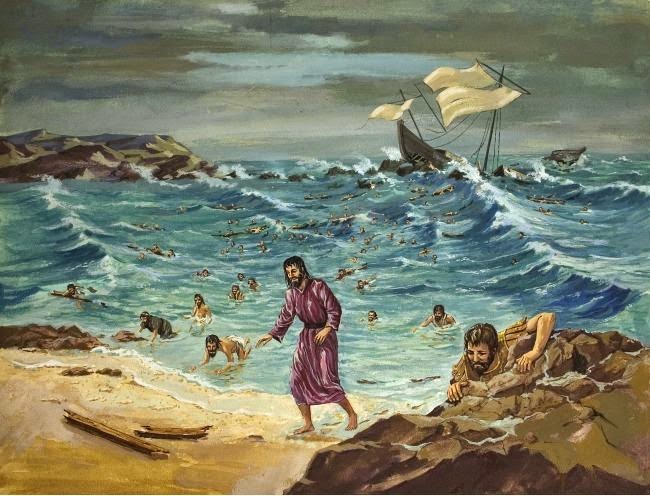The sailors may have believed in what Paul said in Acts 27:24, that they would make it safely to land, but they certainly didn’t believe what he said in v.26, that in order to be spared, they must run the ship aground into some island. This is a denial of the means God promised to bring about deliverance. We can relate to this: “Yes, I believe God can deliver, but I’m going to do it my way–Lord, give me the peace and joy that is promised in your word for all your people. But I’m not going to pursue the means of grace, such as a commitment to pour in the truth into my heart through a steady diet of God’s word, a consistent prayer life and an ongoing, thoughtful service to the local body. Nor am I going to pursue a lifestyle of cultivating godliness through confession, repentance and putting to death the deeds and thoughts of the flesh. I can’t fathom how peace and joy can come through those things, so I’m just going to keep pursuing my own will in order to have some protection, just in case this whole trusting God thing doesn’t work out for me.” We think like that and then we get bitter that God doesn’t work how we think he should, when in reality we are refusing to do what he has said.
The bottom line is that there are no alternative routes to access the promises of God. They all come about by faith in the specific pathways put forth by God’s word and they are all made possible due to the finished work of Jesus Christ—even salvation itself, for no one can be saved apart from the means of entrusting oneself to Jesus Christ evidenced by turning away from oneself and one’s sins.

